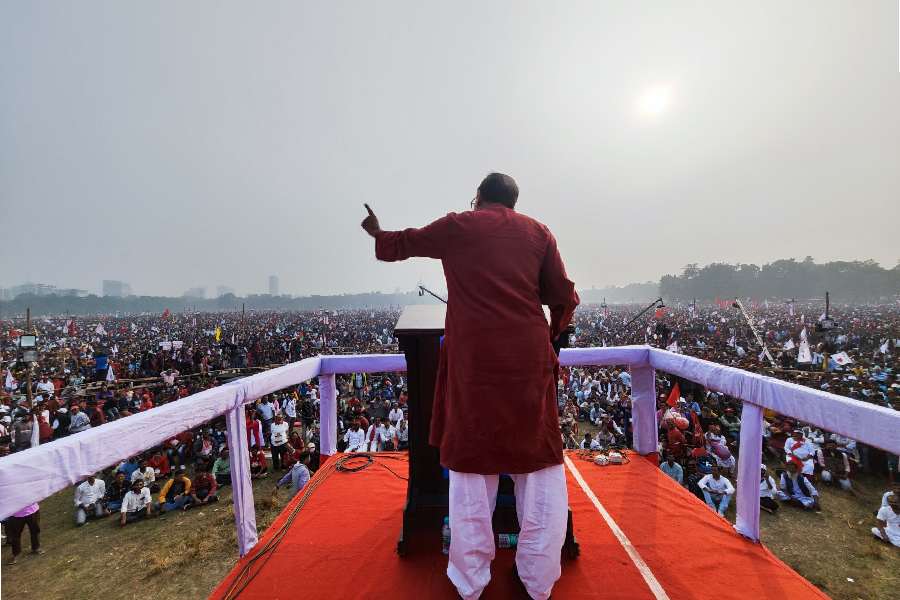CPI(M) state secretary Mohammed Salim on Sunday vehemently criticised the ruling TMC in West Bengal and the BJP-led NDA government at the Centre, accusing them of "neglecting" livelihood issues and "misleading" people with communal politics and corrupt practices.
Addressing a massive rally organised by the CPI(M)'s youth wing, the Democratic Youth Federation of India (DYFI), at Brigade Parade Ground here, Salim asserted that the Left in the state would continue its fight against the TMC, an ally in the opposition bloc INDIA, and the BJP at the national level.
"Those who once attempted to stoke nationalist sentiments in the name of Pakistan and the Pulwama attacks (before the 2019 Lok Sabha polls) are now sowing divisions among the masses based on religion, caste, and creed. The BJP government at the Centre prioritised big corporations at the expense of the livelihoods of the common people," he alleged.
A member of the CPI(M) Politburo, Salim also criticised the TMC, accusing it of having a "tacit understanding with the BJP" to shield its leaders from the central investigation agencies.
"The corrupt TMC can never genuinely confront the BJP. It has a clandestine understanding with the BJP to shield its leaders from the scrutiny of the Central Bureau of Investigation (CBI) and the Enforcement Directorate (ED). The TMC is aligning itself with the saffron camp to inflame communal sentiments in the state for political gains," he said.
Reiterating the party's commitment to oppose both the TMC and the BJP, Salim emphasised that only the Left could effectively advocate the rights of the people.
"A pseudo-conflict is unfolding between the TMC and the BJP over the withholding of MGNREGA dues. However, it is crucial to note that MGNREGA is the brainchild of the Left when we had a significant number of MPs in Parliament. It was at the insistence of the Left, that the law was passed," he added.
The Mahatma Gandhi National Rural Employment Guarantee Act 2005 (MGNREGA) is aimed at enhancing the livelihood security of households in rural areas of the country by providing at least 100 days of guaranteed wage employment in a financial year.
Except for the headline, this story has not been edited by The Telegraph Online staff and has been published from a syndicated feed.











